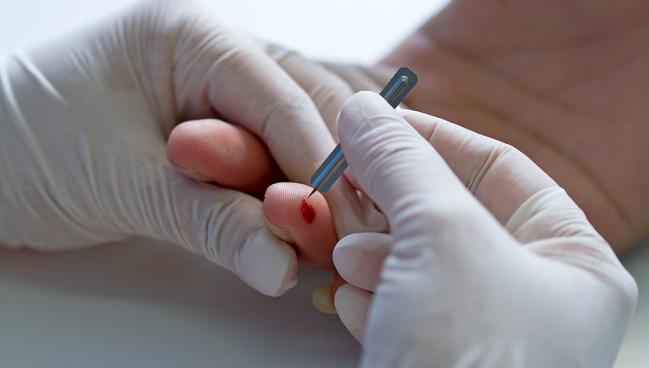Sustained LDL-Cholesterol Reductions With Inclisiran: ORION-3
LDL-C stayed down for 4 years and so did PCSK9 levels, but the real test for inclisiran will be the ongoing CV outcomes studies.

Longer-term follow-up of high-risk patients treated with inclisiran (Leqvio; Novartis) shows that the early reductions in LDL-cholesterol levels are sustained over several years, according to results from the ORION-3 open-label extension trial.
Investigators, led by Kausik K. Ray, MD (Imperial College London, England), say these new data provide assurances that the small-interfering RNA (siRNA)-based therapy is safe and effective and may represent a convenient way for patients to manage high cholesterol levels.
“Taking real-world considerations into account, the emergence of siRNA-based therapies offers physicians and patients another method of targeting PCSK9 and LDL cholesterol-lowering at the level of the population, whereby nine injections administered by a healthcare professional could provide approximately 44% LDL cholesterol-lowering over an average of 4 years,” write investigators in the Lancet: Diabetes & Endocrinology.
Healthcare systems, as well as patients, “would be better served” if there was greater use of inclisiran, as well as other monoclonal antibodies that target PCSK9, such as evolocumab (Repatha; Amgen) and alirocumab (Praluent; Sanofi/Regeneron), in combination with oral medications to control LDL-cholesterol levels, according to Ray and colleagues.
Vijay Nambi, MD (Baylor College of Medicine, Houston, TX), who wasn’t involved in the study, said that patients now have a number of options if they still require additional LDL cholesterol-lowering beyond maximally tolerated statin therapy and ezetimibe. In his practice, the typical inclisiran patient would be someone with established atherosclerotic cardiovascular disease (ASCVD), or even someone with elevated cardiovascular risk, in need of further treatment.
“At that point in time, we start thinking about a PCSK9 inhibitor or bempedoic acid depending on each patient and their preferences,” he said. “Personally, I would go with the monoclonal antibodies because those are the ones with outcomes’ evidence, but I also talk to patients about the availability of inclisiran—it’s an FDA-approved medication, the caveat being that the outcomes’ data [are] still pending. Some patients like the fact that inclisiran is a twice-yearly injection, and they understand the outcomes data are coming.”
To TCTMD, Nambi said that he’s used inclisiran in some patients, but not too many because the drug is relatively new to the US market and patient access remains challenging. “There’s always early problems with insurance,” he said. “Navigating the space is always a little difficult early on.”
Inclisiran currently has a wholesale acquisition cost (WAC) of $3,250 USD per injection, or $6,500 annually based on a schedule of two doses per year. That price is in line with the current cost of evolocumab and alirocumab, two drugs that patients had a very hard time accessing at their initial price of $15,000.
Extending the Open-Label Study
Inclisiran, an siRNA-based therapy that degrades PCSK9 mRNA in the liver, was approved by the Europeans Medicines Agency in 2020 and the US Food and Drug Administration in 2021. It is injected subcutaneously twice a year and has been shown to be safe and effective up to 18 months in various placebo-controlled trials, including ORION-9, ORION-10, and ORION-11. However, with the twice-yearly injection, those patients only received four doses of inclisiran during the study.
With ORION-1, which was a placebo-controlled, phase II, dose-finding study, participants could be rolled into the open-label extension study, which was known as ORION-3. The purpose of the open-label study was to evaluate the longer-term safety and effectiveness of treatment, as well as to assess the effectiveness of switching patients from evolocumab, a monoclonal antibody that binds to circulating PCSK9, to inclisiran.
In ORION-1, 370 patients were treated with inclisiran and 127 with placebo. Of these, 290 of the inclisiran-treated patients continued with twice-yearly therapy (known as inclisiran only) and 92 of the placebo-treated patients were first put on evolocumab twice monthly for 1 year before being switched to twice-yearly inclisiran for 3 years. In total, 80% of the inclisiran-only patients and 87% of those switched to inclisiran completed 4-year follow-up.
At day 210 in the inclisiran-only patients—approximately 570 days after they received their first injection as part of ORION-1—LDL levels were reduced 47.5%. During the 4 years of follow-up, the mean percentage reduction in LDL cholesterol ranged from 34.3% to 53.8% (or 1.13 mmol/L to 1.76 mmol/L), for a 4-year time-averaged reduction of 44.2%. The mean percentage reduction in PCSK9 concentrations ranged from 62.2% to 77.8%, a finding that suggests the participants didn’t develop a compensatory or escape mechanism that would result in a loss of treatment efficacy.
For those who were switched from placebo, treatment with evolocumab reduced LDL levels 47.8% to 65.7%, with a time-averaged yearly reduction of 61.0%. When the patients were then switched to inclisiran, the percentage reductions in LDL cholesterol in years 2, 3, and 4 were 47.9%, 45.4%, and 43.9%, respectively. Overall, there was a 45.3% reduction in LDL cholesterol when averaged over the 3 years after switching.
Safety ‘Encouraging,’ but RCTs Needed
In terms of safety, nearly all patients reported at least one treatment-emergent adverse event, and while these side effects spanned a range of categories, they were generally mild or moderate in severity. The most common side effects reported were nasopharyngitis (19%) in the inclisiran-only arm and hypertension (20%) in the switching group. Side effects at the injection site occurred in 14% of patients, while 7% and 6% of patients in the inclisiran-only and switching arms, respectively, stopped treatment because of an adverse event. In total, there were four serious adverse events possibly related to the study drug. The liver data are in line with what has previously been reported, say investigators.
Right now, Nambi said, caution is still needed when interpreting the new findings, noting that while the data don’t suggest any red flags with extended inclisiran treatment, it’s not the right study to assess safety. Only a large-scale, randomized trial with a placebo arm can address long-term hazards, he said.
Finally, Nambi said that clinicians are awaiting the results of ORION-4 and VICTORION-2P, the two large cardiovascular outcomes trials testing inclisiran. Combined, those two trials will see roughly 30,000 patients with cardiovascular disease treated with inclisiran, although results aren’t expected until 2026 and beyond. Still, he remains optimistic both will be positive, noting that pooled analyses from the ORION trial program suggest a lowered risk of cardiovascular events with treatment.
The ORION-3 investigators point out the US and European guidelines continue to evolve, driving acceptable LDL-cholesterol levels for high-risk patients down further and further with each iteration. Still, guideline adherence remains patchy, which may be explained by poor use of combination therapies or poor patient adherence. Even when patients are treated with statins and ezetimibe, many will still require a treatment that targets PCSK9, they say.
Michael O’Riordan is the Managing Editor for TCTMD. He completed his undergraduate degrees at Queen’s University in Kingston, ON, and…
Read Full BioSources
Ray KK, Troquay RPT, Visseren FJ, et al. Long-term efficacy and safety of inclisiran in patients with high cardiovascular risk and elevated LDL cholesterol (ORION-3): results from the 4-year open-label extension of the ORION-1 trial. Lancet. 2023;Epub ahead of print.
Disclosures
- Ray reports grants from Amgen, Sanofi, Daiichi Sankyo, Regeneron, and Pfizer; consulting fees from Daiichi Sankyo, Silence Therapeutics, Novartis, SCRIBE, CRISPR, VAXXINITY, Cargene, Novo Nordisk, Sanofi, Astra Zeneca, Eli Lilly, Silence Therapeutics, Resverlogix, New Amsterdam, Kowa, Bayer, Amarin, and Esperion; and personal fees from Novartis, Amgen, Viatris, Novo Nordisk, Boehringer Ingelheim, Daiichi Sankyo, Kyrka, and Astra Zeneca.




Comments